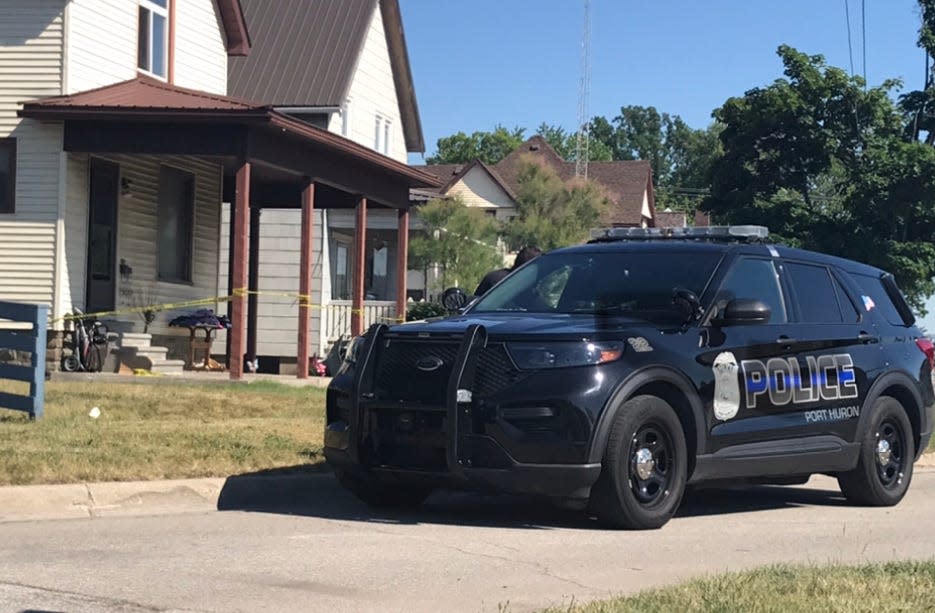Medical examiner's office may take on oversight of all St. Clair County death investigations

St. Clair County may be changing the way it manages death investigations.
County Administrator Karry Hepting said that area law enforcement has primarily handled death investigations with the medical examiner’s office following up — with police agencies taking incidents during the day and the ME overnight.
But earlier this year, she said administrators got a letter from area police chiefs, speeding up “ongoing conversations” about who handles death investigations full-time, the training it requires of police officers, and what options may be most cost-effective.
“All the officers that were trained and as people start to retire and new officers come on, there just aren’t enough people trained to do it for coverage,” Hepting said in an interview last week. “And as more people retire, it’s becoming more of an issue.”
A proposal is now on the table for Clinton Township-based Michigan Forensics, PLLC, to take over medical examiner services full-time under the area’s existing ME Dr. Daniel Spitz.
An update to the county’s ME agreement, which ends in December 2023, was originally before the county board of commissioners last Thursday. However, the board postponed its formal consideration until January to allow Hepting time to meet with local police officials and Spitz this month.
Michigan Forensics is proposing $119,800 to cover all daytime death investigations for an additional 4,380 hours of coverage per year. According to a memo from Hepting to commissioners, a comparison showed it would cost one full-time deputy who’s trained to cover investigations about $117,924 for 2,080 hours of coverage.
“Financially, it makes sense to have the medical examiner’s office take over the full operation,” Hepting said. “It has his staff doing it under his control for the investigations, and that was part of the concern, too. Police chiefs or a police officer in a local unit don’t report to Dr. Spitz.”
Hepting said it also made sense in cases where non-suspicious death scenes keep law enforcement from other police work. In her memo, she also talked about response time and the EMS workers who are also required to remain on scene until an officer or ME staff arrive, potentially tying up other emergency personnel.
Hepting said she’d last met with law enforcement at the end of September.
A county analysis showed that the overall number of death investigations was 403 in 2019, 541 in 2020, and 526 this year through October with an estimated 630 total by the end of 2021.
How do death investigations affect law enforcement?
St. Clair County Sheriff Mat King said death investigations can take time away from other police duties and bring deputies out of assigned jurisdictions.
Sending about 12 deputies to be trained to handle death investigations a year ago helped combat a shortage of investigators, the sheriff said. Now, his department has about 18 who are currently trained.
However, six or seven of them are eligible for retirement anywhere in six months to two and a half years, and he said, “That would put a big dent in our resources as far as how many death investigators we have.”
As is, King said law enforcement still arrives at death scenes within two to three hours to determine whether it’s suspicious, which most deaths aren’t.
In Marysville, Deputy Public Safety Director Edward Gerrow is the only trained death investigator after two others retired or left earlier this year.
He agreed there was a shortage of investigators. But he also had concerns about response times between ME officials versus his own and that of other police officials.
“Now, we have an initial responding officer that goes. When does the ME’s office get dispatched? Do they get dispatched immediately? Or do they get dispatched once the officer is on scene? And then what is the response time for them? How many are they going to have staffed full-time?” Gerrow said last week. “… These are the questions that we don’t know the answer to yet. So, I’d like to see personally that be hammered out before this goes through.”
Port Huron’s police department has six employees left who have been trained by the ME’s office, while Assistant Chief Marcy Kuehn said the rest of the supervisors and detectives who respond to the scene of a death are trained in-house by one of those six.
The proposed agreement itself, she said, would “free up our limited number of day-shift officers and detectives.”
Still, Kuehn said she thought more training was needed.
The city has asked the ME for more training, but it was delayed in 2020 because of COVID and no additional sessions have been scheduled for this year.
Contact Jackie Smith at jssmith@gannett.com. Contact Laura Fitzgerald at lfitzgeral@gannett.com.
This article originally appeared on Port Huron Times Herald: ME's office may take on oversight of all St. Clair County death investigations

